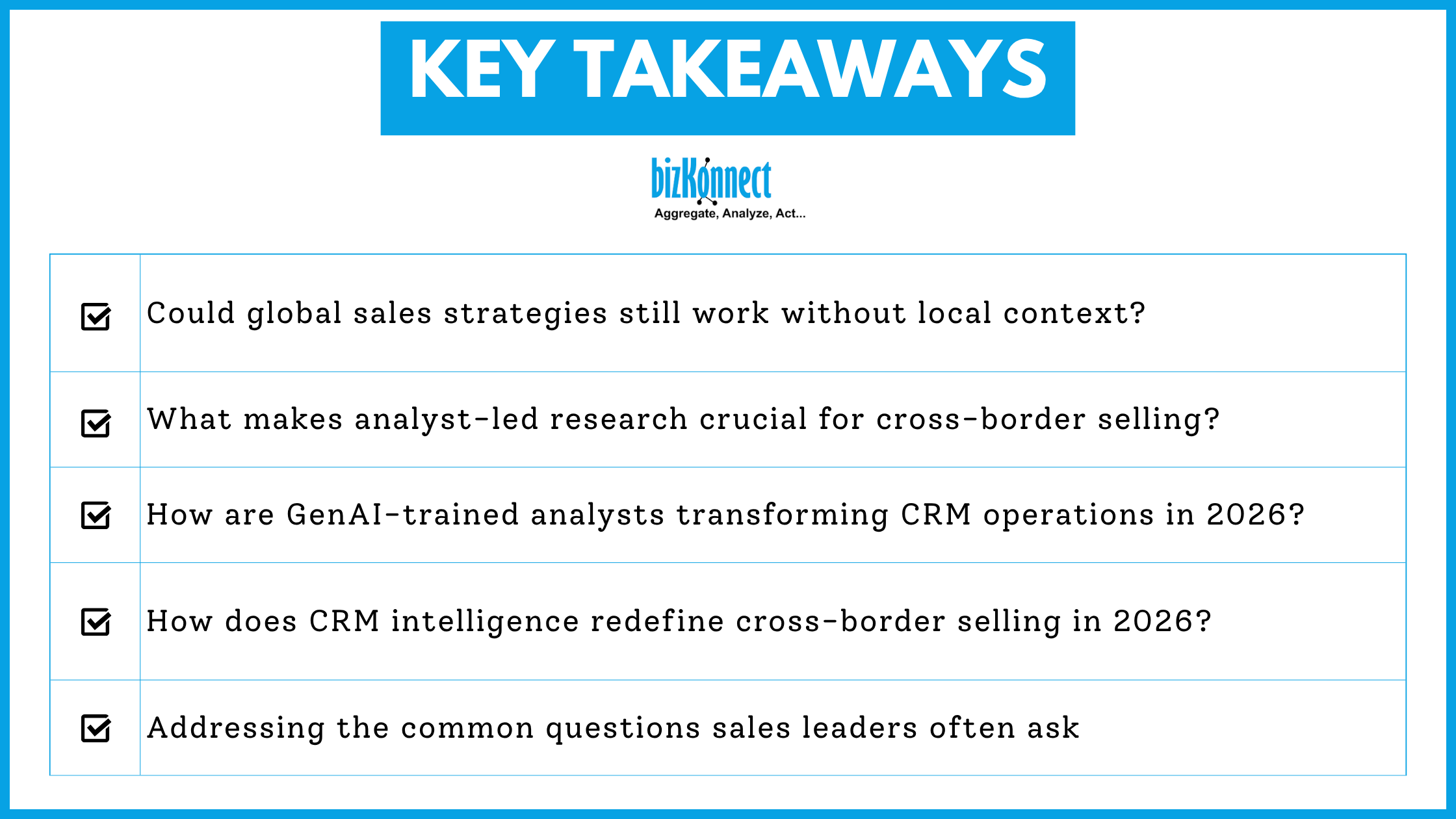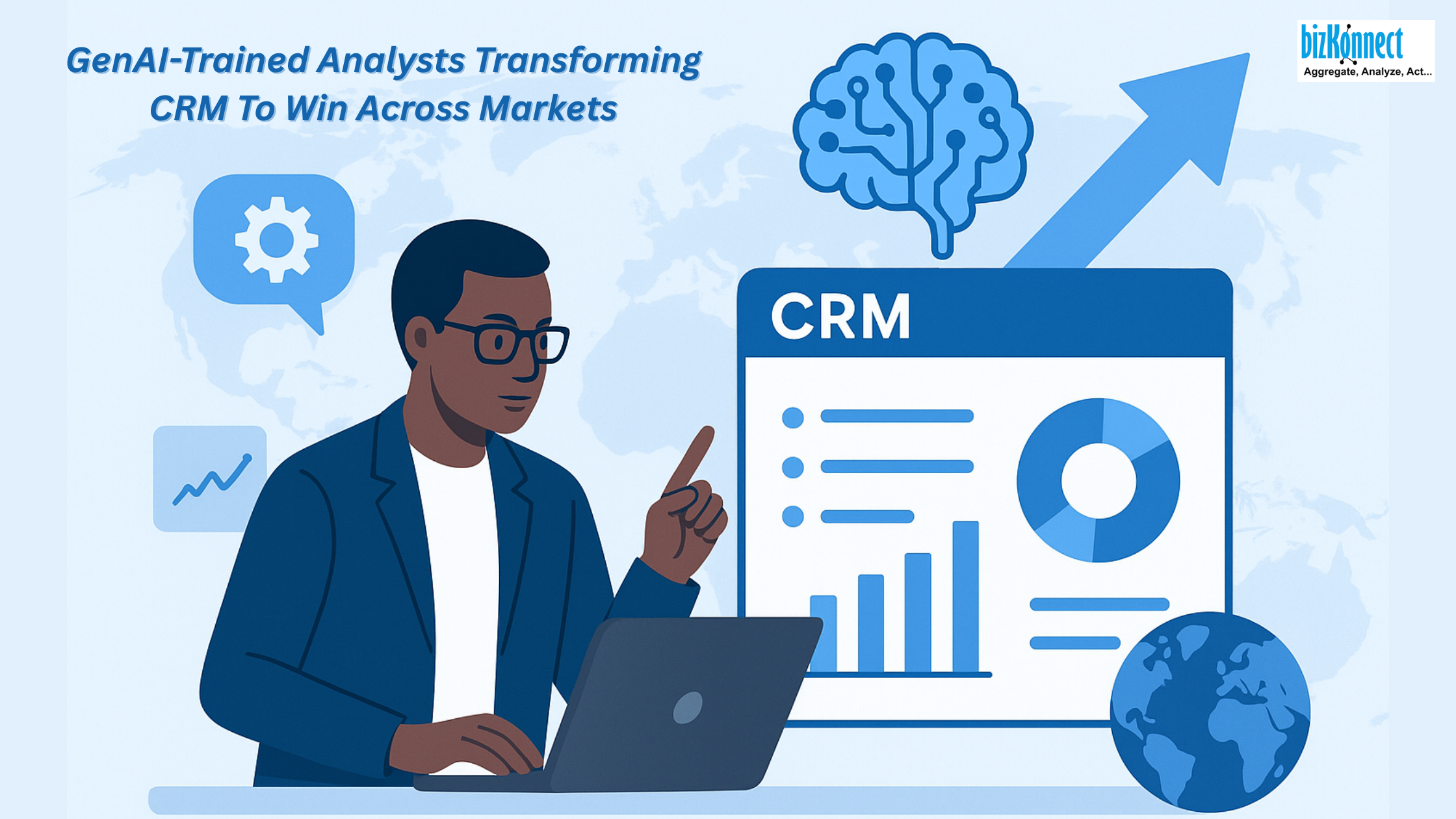Global sales cycles are shifting again as the year 2025 edges toward its finish. Markets are entering a phase where surface-level data no longer helps teams stay competitive, and 2026 is already shaping up to reward those who operate with sharper CRM data intelligence. The focus has moved from collecting contacts to understanding the signals behind them. Teams that once relied on static lists now need richer, verified context to approach accounts with accuracy.

This is why many organizations are reshaping their CRM environments into analyst-curated ecosystems that adjust with every market movement. Continuous CRM data refresh keeps records current, while GenAI-trained research analysts strengthen the system with verified updates and contextual insight. Their work turns CRM management into something strategic, connecting behavioral cues, regional differences, and company developments so sellers enter 2026 with clarity rather than guesswork.
This shift marks the end of “one-size-fits-all” outreach and the rise of precision-led selling where every record in your CRM tells a story of intent, influence, and opportunity.
So, could global sales strategies still work without local context?
Not anymore. Selling across markets used to rely on territory-based segmentation, but 2026 demands something different: context-based engagement. Teams now realize that cross-border deals hinge on four interlinked intelligence pillars:
- Company insights: growth indicators, expansion triggers, funding rounds, and hiring velocity.
- People insights: role shifts, decision-making power, and internal collaboration patterns.
- Alumni networks: shared employer history, university ties, or mutual connections.
- Technology signals: the CRM, cloud, and analytics stacks in use.
The challenge? These data points change constantly. A recent study found that B2B data decays at a rate of over 5% per month, meaning nearly 70% of CRM data becomes outdated every year. When that happens, even your best global campaigns lose direction.
That’s why forward-looking sales leaders are investing in real-time CRM data updates curated by local analyst teams. Their job is to bridge language nuances, business etiquette, and buyer motivations across regions.
What makes analyst-led research crucial for cross-border selling?
Cross-border selling succeeds when teams blend automation with human interpretation. Analyst-led research offers exactly that. GenAI solutions can flag company intent signals, but analysts contextualize them.
This blend creates GenAI-curated account maps, merging behavioral data, firmographics, and local cultural cues. Instead of chasing random leads, teams can prioritize accounts that are truly expanding, hiring, or adopting complementary technologies.
For example, most B2B buyers expect sellers to understand their business context before reaching out. Analyst-supported CRM enrichment ensures that context exists before a single email or call is made.

How are GenAI-trained analysts transforming CRM operations in 2026?
Earlier, CRM used to be a digital address book. As 2026 is around the corner, it’s a live ecosystem of intent and intelligence. But managing it at scale is no small task because data decays, duplicates multiply, and manual updates rarely keep pace with market changes. That’s where CRM managed services led by GenAI-trained analysts step in. These experts serve as an extended data operations team, ensuring that your CRM doesn’t just store information, it evolves with it.
Their work typically involves:
- System configuration and customization: aligning CRM fields, layouts, and workflows with firm-specific goals.
- Data import and merging: ensuring integrity, accuracy, and the removal of duplicates.
- Data cleansing and validation: correcting outdated titles, phone numbers, and email addresses.
- Integration with automation tools: linking CRMs with marketing and analytics platforms for seamless reporting.
- Relationship management: tracking communication histories and personal preferences to personalize future outreach.
In essence, these analysts bridge the gap between CRM data management and strategic growth enablement.
How does CRM intelligence redefine cross-border selling in 2026?
The evolution of CRM intelligence signals a broader shift from contacts to context. Sellers now recognize that every market has its nuances: budget cycles differ, buying authority structures vary, and collaboration networks look entirely different across geographies.
With GenAI-powered enrichment and analyst-led account mapping, CRM systems become an ultimate database that is updated in real-time. They merge global reach with local precision, helping teams approach each market with cultural awareness and data-backed timing.
It’s this union of technology and human intelligence that defines successful selling in 2026.
Addressing the common questions sales leaders often ask
With these challenges and solutions come a few recurring questions. Let’s address them briefly.
Q1. What is CRM data refresh and why is it important in 2026?
It’s the process of continuously updating existing CRM records to reflect real-time changes in contacts or companies. It ensures that outreach efforts are timely and relevant within the evolving industries in 2026.
Q2. What are the benefits of CRM data cleansing for sales teams?
Clean data reduces bounce rates, improves personalization, and increases conversion by ensuring sales reps engage only verified, current prospects.
Q3. How often should a CRM data refresh be performed?
Ideally, every quarter for fast-moving markets in 2026, though companies handling high-volume global data prefer automated monthly refresh cycles.
Q4. Is GenAI replacing human analysts?
Not at all. It amplifies their capabilities by allowing analysts to spend less time on repetitive tasks and more on strategic interpretation.
Still running your CRM the old way? See how BizKonnect is changing the game with GenAI.